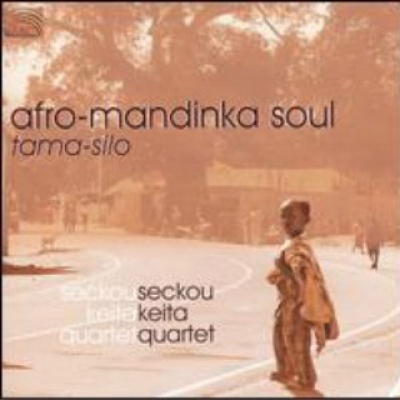
Afro-Mandinka Soul
GreenbergPreviously, Seckou Keita has been known for his solo performances on kora, and for his work with Baka Beyond. Sitting somewhere in between is this album, in group size as well as aesthetic. Much of Keita's previous work was essentially traditional at heart. Much of Baka Beyond is fusion. Here, Keita includes a trio of other musicians (an Italian bassist, a Gambian percussionist, and an Egyptian violinist), and the compositions attempt to bridge the gap between traditional and modern. The kora is played for much of the album in relatively traditional ways (though there are some interesting tunings involved), but is sometimes enlisted for a more Western melodic line or two. At the same time, the harmony and rhythm are sometimes related to the Senegalese sound, but just as often involve deeper bass thumps, string arrangements, and a modern drum set. With this plethora of influencing sounds, it becomes a difficult job to keep the sound coherent and steady. Keita does this admirably for the most part, letting a come-and-go style rule which instrument is primary at a given moment. At the same time, the sound can become rather like that of a jam session due to this same ideal. The quartet works well together, though the sound can become a bit muddled. The star throughout, though, is certainly Keita himself, with both melodic motives and flights of fantasy on the kora coming across well, whether the overall sound of the moment be African, nightclub jazz, or Middle Eastern (or some combination thereof). Keita's earlier albums may prove better as opening salvos, but this one is still a nice piece for those who are curious about where the kora can go in the future
